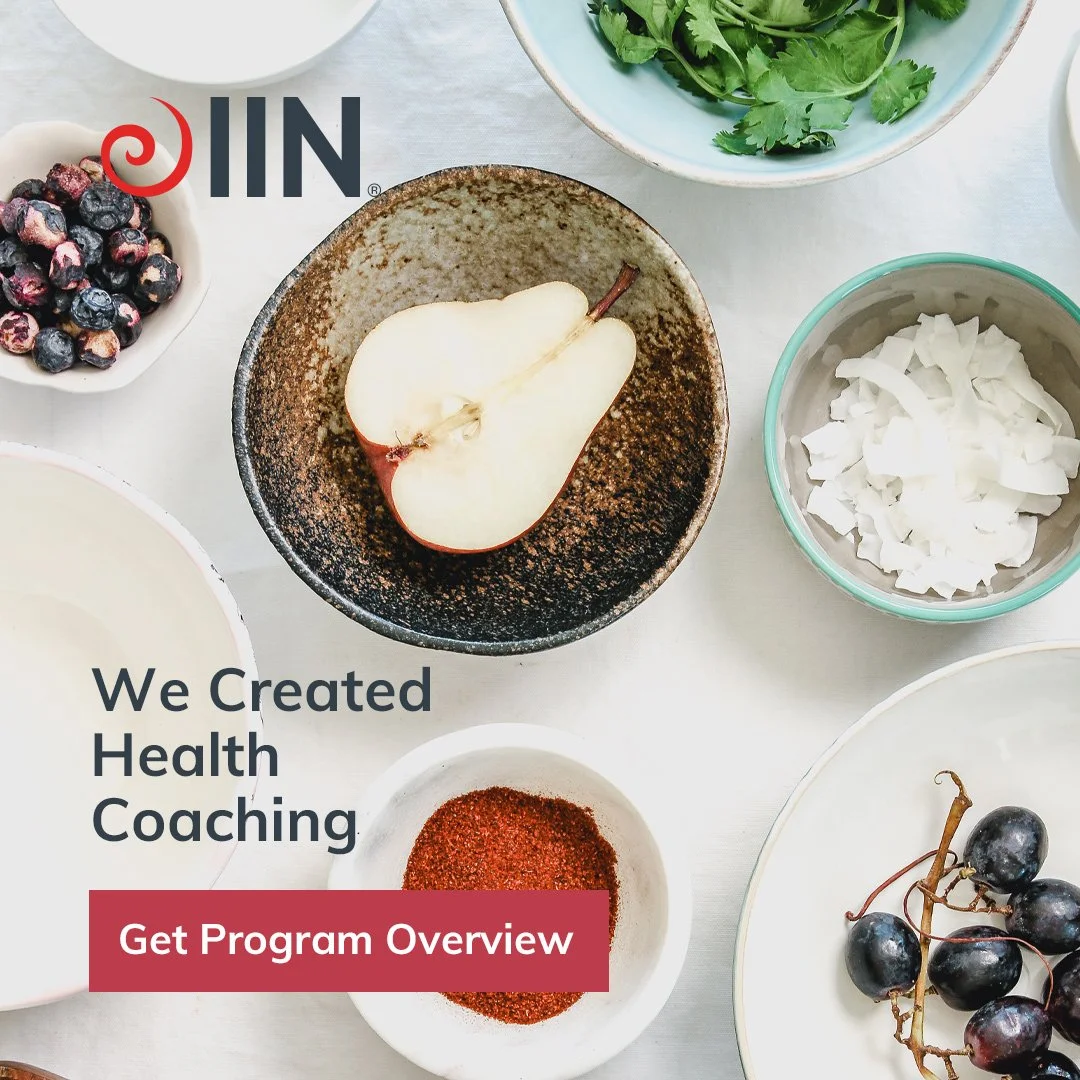What the Heck is a Health Coach?
Thanks to the internet and rise of social media, there is an overwhelming amount of information around how to “live a healthy lifestyle.” You might be asking yourself if you should try the Keto diet, go vegan, give up carbs, eat more carbs, stop eating meat, commit to a plant-based diet, try a Mediterranean diet, juice in the morning, or start intermittent fasting. Endless options and mixed information can be confusing at best and dangerous at worst. That’s where a health coach can help.
The Institute for Integrative Nutrition – the largest nutrition school in the country (and where I received my degree) – defines a health coach as someone “who helps others feel their best through personalized diet and lifestyle changes.” Health coaches work with clients to help them discover the best wellness routines that work for them and empower them to meet their unique health goals. To put it simply, health coaches are educated mentors in the fields of nutrition and wellness. They believe in bio-individuality, meaning that what health looks and feels like is different from person to person. There is no one-size-fits-all diet.
Unlike dietitians or nutritionists, health coaches do not give personalized nutrition advice or prescribe diets or meal plans, but instead act as a supportive guide to help people create new habits, transform goals into reality, let go of unhealthy behaviors, and most importantly, empower individuals to become their own advocates. Health coaches also take an integrative and holistic approach to health, encouraging clients to look beyond just food and consider other areas in life that provide “nourishment,” such as relationships, career, spirituality, home environment, and more. You can think of a health coach as a life coach that’s specifically focused on health and wellness.
Why Are Health Coaches Important?
According to the CDC, about 60% of the US population has been diagnosed with a chronic medical disease – heart disease, cancer, diabetes, asthma, arthritis, irritable bowel syndrome, etc. Chronic conditions are the leading cause of death and disability in the US and the leading drivers of the nation’s $4.1 trillion in annual health care costs.
Recent research has shown that almost 85 percent of disease risk comes down to environmental and lifestyle factors. This is significant because it means that by minimizing major risk factors such as poor diet, sleep deprivation, exposure to toxins, stress, smoking, lack of exercise, and more, chronic illness can be improved or eliminated – even for those who have a genetic predisposition to certain conditions.
As we all know, the current way of treating most illnesses is to use drugs to help minimize symptoms instead of addressing root causes to prevent and reverse disease. To use a simple analogy, imagine getting a rock stuck in your shoe that makes your foot hurt every time you take a step. In the current medical system, the solution would be to prescribe you pain medication. Of course, the drugs would help you forget the pain for a short amount of time, but why not take your shoe off and dump out the rock so that the problem no longer persists?
Helping patients identify simple changes to improve their overall health and reduce symptoms may sound easy, but it’s often difficult for medical practitioners to find the time to help their clients plan these types of strategies. We’ve all experienced the doctor's visit where we spend an hour waiting in the lobby for just 15 minutes of face time, leaving hardly any room to ask questions or dive deeper into our personal health issues. We all deserve more.
Trained health coaches can actually take on a lot of these responsibilities, carving out longer periods of time to listen to clients and help them establish short and longterm wellness goals. Health coaches can also help guide individuals through changes in their personal life, career, nutrition, and lifestyle habits. By teaching people the skills they need to live a healthy life, health coaching can actually lower long-term health care costs, making this a channel worth considering. Health and wellness coaches are popping up in doctor’s offices, schools, wellness facilities, community centers, on social media, and within corporate spaces all over the country, proving how important their roles are becoming.
Summary
Health coaches have a unique skill set to help clients reach their full potential by creating awareness, approaching wellness as a long-term lifestyle, identifying patterns, changing limiting beliefs, offering individualized care, and most importantly, empowering individuals to take an active role in their own path to healing.
To summarize, health coaches:
Partner with patients to identify health goals and encourage clients to take an active role in their own path of healing
Collaborate with and support healthcare providers in helping patients improve their health and well-being
Check in on clients’ understanding of and feelings about treatment protocols and/or help brainstorm meal ideas with various foods
Take a preventable approach and help clients make connections between health issues and life stressors
Provide basic education centered on supplements
Explore and provide information, resources, and help find practitioners who fit client needs
Wherever you are in your health journey, it’s important to remember that you are the creator of your own path.
The Institute of Integrative Nutrition (IIN)
One of the OG players in the health and wellness field, IIN provides students with an innovative, holistic, online curriculum that explores more than 100 dietary theories and dives into topics like your relationship with food, healing the gut, functional medicine, intermittent fasting, intuitive eating, mind-body wellness, stress and your body, and so much more. Get their free program overview here and use the code ANASTASIAPLOTNIKOVAXIIN to receive 20% off any course when signing up. I promise, this will change your life. I know it absolutely changed mine.



